Extra Credit Project: Read a Book
Assignment
- Choose a book from the options below. They are organized by topic, so pick one that interests you. **Abe's recommendations**
- Acquire the book either from a library or a book store. The cover image is linked to the Amazon webpage for that book.
- Click on the title of the book to download the questions for the book. While (or after) you read the book, answer the questions on the worksheet in your own handwriting. Typed answers will not receive credit.
- Complete the supplemental reading verification form.
- Turn in the completed questions and the supplemental reading verification form to earn up to 45 extra points.
List of Books
ECOLOGY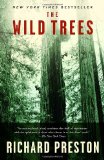 The Wild Trees: (Richard Preston). Includes the history of old-growth forests, canopy ecology, tells how gadgets and techniques to climb were invented and introduces recreational tree-climbing as a sport. The Wild Trees: (Richard Preston). Includes the history of old-growth forests, canopy ecology, tells how gadgets and techniques to climb were invented and introduces recreational tree-climbing as a sport. |
 The World Without Us: (Alan Weisman). If humans when extinct overnight, how long before all trace of humankind vanished? The World Without Us: (Alan Weisman). If humans when extinct overnight, how long before all trace of humankind vanished? |
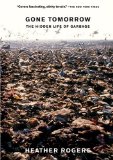 Gone Tomorrow: (Heather Rogers). Americans produce the most waste of any people on Earth, but few of us ever think about where all that trash goes. Rogers endeavors to show the inner workings of the waste stream, from the garbage truck to the landfill, incinerator or parts unknown. Gone Tomorrow: (Heather Rogers). Americans produce the most waste of any people on Earth, but few of us ever think about where all that trash goes. Rogers endeavors to show the inner workings of the waste stream, from the garbage truck to the landfill, incinerator or parts unknown. |
GENETICS
 The Journey of Man: (Spencer Wells). Tracking human relatedness and migration by examining Y-chromosome similarities and differences among current humans. The Journey of Man: (Spencer Wells). Tracking human relatedness and migration by examining Y-chromosome similarities and differences among current humans. | 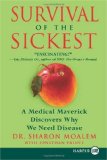 **Survival of the Sickest**: (Sharon Moalem). Addresses a number of provocative questions, such as why debilitating hereditary diseases persist in humans and why we suffer from the consequences of aging. **Survival of the Sickest**: (Sharon Moalem). Addresses a number of provocative questions, such as why debilitating hereditary diseases persist in humans and why we suffer from the consequences of aging. |
EVOLUTION
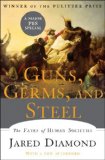 Guns, Germs, Steel: (Jared Diamond). Through the lens of an evolutionary biologist, Diamond reviews human history on every continent since the Ice Age at a rate that emphasizes the movements of peoples and ideas. Guns, Germs, Steel: (Jared Diamond). Through the lens of an evolutionary biologist, Diamond reviews human history on every continent since the Ice Age at a rate that emphasizes the movements of peoples and ideas. |
 The Origin of Species: (Charles Darwin). One of the most important and influential books ever written, it is one of the very few groundbreaking works of science that is truly readable. The Origin of Species: (Charles Darwin). One of the most important and influential books ever written, it is one of the very few groundbreaking works of science that is truly readable. |
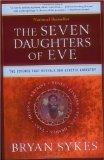 The Seven Daughters of Eve: (Bryan Sykes). Decoding mitochondrial DNA and using this knowledge to trace the path of human evolution, Sykes relates personal and historical anecdotes, offering familiar ground from which to consider the science. The Seven Daughters of Eve: (Bryan Sykes). Decoding mitochondrial DNA and using this knowledge to trace the path of human evolution, Sykes relates personal and historical anecdotes, offering familiar ground from which to consider the science. |
INFECTIOUS DISEASE
 The Woman with a Worm in Her Head: (Pamela Nagami) A collection of infectious disease essays, including AIDS, chickenpox and flesh-eating bacteria. The Woman with a Worm in Her Head: (Pamela Nagami) A collection of infectious disease essays, including AIDS, chickenpox and flesh-eating bacteria. |
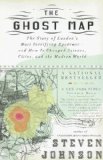 **Ghost Map**: (Steven Johnson). On August 28, 1854, working-class Londoner Sarah Lewis tossed a bucket of soiled water into the cesspool of her squalid apartment building and triggered the deadliest outbreak of cholera in the city's history. **Ghost Map**: (Steven Johnson). On August 28, 1854, working-class Londoner Sarah Lewis tossed a bucket of soiled water into the cesspool of her squalid apartment building and triggered the deadliest outbreak of cholera in the city's history. |
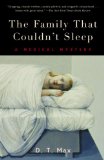 The Family that Couldn't Sleep: (T.D. Max). The case of an Italian family whose members succumb to a sleeping disorder that causes not only insomnia but certain death. The cause of this disease is determined to be prions—infectious agents derived from proteins. The Family that Couldn't Sleep: (T.D. Max). The case of an Italian family whose members succumb to a sleeping disorder that causes not only insomnia but certain death. The cause of this disease is determined to be prions—infectious agents derived from proteins. |
THE BRAIN
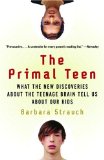 Primal Teen: (Barbara Strauch). The latest research, including brain scans that show changes in the brain's structure and function that could explain the crazy behavior exhibited by teens. Primal Teen: (Barbara Strauch). The latest research, including brain scans that show changes in the brain's structure and function that could explain the crazy behavior exhibited by teens. |
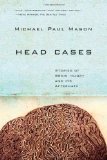 Head Cases: (Michael Paul Mason). This book takes us into the dark side of the brain in an astonishing sequence of stories, at once true and strange, from the world of brain injury. Head Cases: (Michael Paul Mason). This book takes us into the dark side of the brain in an astonishing sequence of stories, at once true and strange, from the world of brain injury. |
WOMEN IN SCIENCE
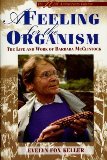 A Feeling for the Organism: The Life and Work of Barbara McClintock: (Evelyn Fox Keller). An insightful and thought-provoking book about women in science and the role of dissent in the scientific community. A Feeling for the Organism: The Life and Work of Barbara McClintock: (Evelyn Fox Keller). An insightful and thought-provoking book about women in science and the role of dissent in the scientific community. |
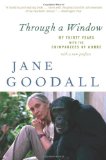 Through a Window: My Thirty Years with the Chimpanzees of Gombe: (Jane Goodall). A saga of chimpanzee families with an engrossing account of animal behavior. Through a Window: My Thirty Years with the Chimpanzees of Gombe: (Jane Goodall). A saga of chimpanzee families with an engrossing account of animal behavior. |
 Rosalind Franklin: The Dark Lady of DNA: (Brenda Maddox). A powerful story of a remarkably single-minded, forthright, and tempestuous young woman who was airbrushed out of the greatest scientific discovery of the twentieth century. Rosalind Franklin: The Dark Lady of DNA: (Brenda Maddox). A powerful story of a remarkably single-minded, forthright, and tempestuous young woman who was airbrushed out of the greatest scientific discovery of the twentieth century. |
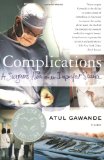 Complications: A Surgeon's Note on an Imperfect Science: (Atul Gawande) Edgy accounts of medical traumas and sobering analyses of doctors' anxieties and burnout. Complications: A Surgeon's Note on an Imperfect Science: (Atul Gawande) Edgy accounts of medical traumas and sobering analyses of doctors' anxieties and burnout. |
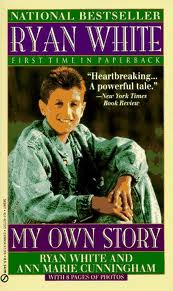 Ryan White, My Own Story: (Ryan White). Although Ryan White was born with hemophilia, the boy and his family were determined that he live as normal a life as possible. But, given contaminated blood in a transfusion, Ryan contracted AIDS. Ryan White, My Own Story: (Ryan White). Although Ryan White was born with hemophilia, the boy and his family were determined that he live as normal a life as possible. But, given contaminated blood in a transfusion, Ryan contracted AIDS. |
 What Patients Taught Me: (Audrey Young). A firsthand depiction of the hardships and rewards of medical school, this sensitive memoir may serve as a guide to help readers who are considering traversing that same path. What Patients Taught Me: (Audrey Young). A firsthand depiction of the hardships and rewards of medical school, this sensitive memoir may serve as a guide to help readers who are considering traversing that same path. |
